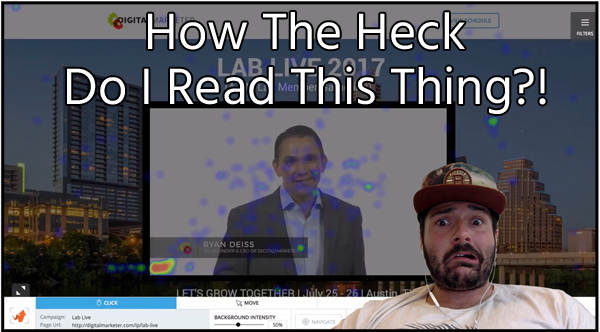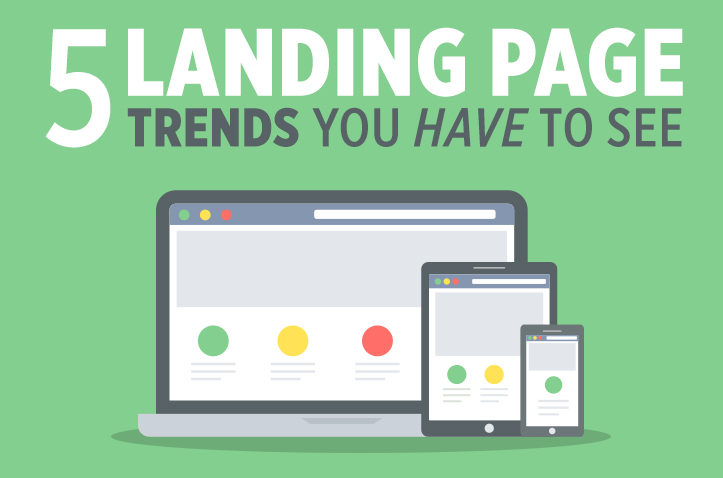Have you ever thought about why you clicked on some particular ad or an article headline? Or why are some product descriptions persuasive than others?
It all comes down to the psychology of persuasion. The way we communicate our message makes a huge difference on the web.
While in real life, charisma, looks and body language come to play, online there’s just the design and the marketing copy. And as it is with language, certain words can stimulate brain chemistry and influence your decisions in life.
Thus, even one word can make an incredible difference to your conversion rate. And while the underlying message is absolutely important, the words used to deliver it are equally so.
So, to get to the point, here’s an overview of words and phrases that trigger the action.
Contents
The 3 Most Important Words
Before we get into specific categories of trigger words, here are the three that grab attention and convert the most. These three words can be easily crowned the kings of the marketing copy.
#1 “You, Your”
It turns out this word is the most powerful as gives a personalized touch. And, at the end of the day, we all care about ourselves the most.
But that isn’t all. Studies show we’re more likely to spend more money whenever an add or offer implies personalization.
And while people will like the word “you,” it’s guaranteed that that they’ll love to read their name even more.
According to a recent study on brain response, seeing our own names in print or on the screen makes us most likely to light up. Our names make up a huge part of our identity and are intrinsically tied to our egos.
#2 “Free”
We all love freebies don’t we? In his book Predictably Irrational, Dan Ariely examined a competition case of Lindt chocolate truffles and Hershey Kisses.
In the study, he asked people to choose between a 1 cent Hershey Kiss or a 15 cent Lindt truffle. Over 70% of people went for Lindt.
But as soon as both brands altered their prices, something surprising happened. While Lindt dropped the price by 1 cent, Hershey’s decided to brand its product as “one kiss Free.” This little change of language made a huge difference. Now, almost 70% picked Hershey’s over Lindt
There are many studies that support this. We simply love the word “free” and it rarely fails to grab out attention. But be careful how you use it.
#3 “Because”
Another great study from the marketing classic Influence, by Robert Cialdini, shows the power of providing a reason. In series of tests, participants were testing the willingness to cut the line.
When they asked “Excuse me, I have 5 pages. May I use the Xerox machine?” 40% refused.
But when they provided a reason asking “I have 5 pages. May I use the Xerox machine because I am in a rush?” almost everyone agreed.
According to Cialdini: “A well-known principle of human behavior says that when we ask someone to do us a favor we will be more successful if we provide a reason. People simply like to have reasons for what they do.”
Words That Imply Exclusivity
Exclusivity sells. That’s because we all want that feeling of being special in some way. Whether we realize it or not, we like to feel as if we are a part of a select elite group, even if it’s only a temporary illusion.
Words that imply exclusivity suggest exactly that. It’s so powerful that there are numerous “members-only” e-commerce sites, that scaled on the back of perceived exclusivity alone.
Sites like Voyage Prive, scaled to €400-million revenues using this tactic, then letting existing members to gift invites to friends. That’s free marketing by the way.
Exclusive: What a surprise. As you could expect the word “exclusive” tops the list here. If used correctly, it can seriously boost your conversion rates.
Members Only: Again, this implies a certain social pressure to be part of a club. We all want what we can’t have and “members only” uses the same psychology.
Subscribe: This a great and a straightforward call-to-action. Obviously, you have to provide an incentive and assure people you won’t spam them.
Scarcity Words
We’re all motivated by fear and greed. It affects our decisions so much; it can be a serious disadvantage. For example, it’s the main reason emotionless machines can beat any retail investor when it comes to buying and selling stocks.
Scarcity also implies a deadline. You have to act now to get it. People like to procrastinate and to make them act there needs to be a strong motivator of missing out.
Limited: This is the main reason Groupon became one of the fastest growing companies ever. All deals are time limited, and quantity limited too. Moreover, people needed to get their friends to buy to reach the “groupon” to make the deal active.
Only: Only X left. Today Only. Etcetera. Same principle, except it makes people act now. The point is, there’s an interesting curve and if people don’t act while it peaks, it will eventually decline.
Don’t miss out: Pretty straightforward isn’t it? Tell people not to miss out. While so obvious, it works.
Words Implying Lack of Risk
Stressing the lack of risk is essential, especially if someone’s buying from you the first time. Same applies to startups without any brand recognition.
The fact is people are afraid to give away their credit card details (surprising huh?). There are over one billion websites and plenty of scammers and spammers.
Risk-free: Just take the risk out of the equation. But don’t just state it, reinforce the message by offering a money-back guarantee, free returns or some other equivalent.
Guaranteed: As implied offer a guarantee. If you guarantee “results”, support your statement with testimonials and case studies.
Cancel Anytime: When people subscribe to something, for example, email newsletter or a SaaS product, they’re afraid they may be no way back.
We all heard of companies; that want you to fax a signed and notary approved cancellation letter or similar nonsense.
Trust Building Words
Building trust goes hand-in-hand with stressing the lack of risk. Showing trust signs such as “secured by” or “approved” uses the same psychology. Just like we like to get assured about the risks, we want to know we’ll get the desired value.
Secure: That’s just another phrasing of “risk-free”, but you want to use it alongside. The reason is that different people have differed motivations. And they need to be assured in accordingly.
Authentic: A very powerful word in e-commerce sales. With globalization, it’s very difficult to track origin and most people have at least one negative experience with buying a misrepresented product.
Endorsed: Social proof is category of its own. Endorsements are the best way to stress it. But don’t stop there. Show faces or logos of people and brands that endorsed your product.
Certified: Like endorsement, use certifications from recognized bodies in your marketing copy. Show your membership in trade bodies and associations.
Best Selling / Top Rated: If you can claim it, do it. This is another form of social proof that works. If others like it, it’s probably good.
Words to Improve Sales
In sales, the language makes a huge different between closing the deal and walking home alone.
While there are several words, that are related to boosting sales using well-crafted marketing copy, these three are some of the most frequent.
Value: Customers don’t care about the features or benefits a product provides. They care about what salespeople call “WIIFM – What’s In It For Me?” In other words, they want value.
This word is also very powerful when used in pricing. People don’t like to pay the “price” they like to pay the “value.” The price implies spending; value implies an investment.
Sale/Off: Sale implies an opportunity and has a combines the power of our desire to pick the low hanging fruit and a fear of scarcity.
Words That Inspire Action
OK, so conversion is all about users taking action. We already know that right? What’s interesting is how you can use these action in combination with teasing the audience to maximize results.
A great example is headlines used by Upworthy. What they do is that they try to create a so-called “curiosity gap.” That is, you want to tantalize your audience enough without giving it all away.
The idea is to grab attention but leave your audience wanting more to open the link. And that’s where these action words come in.
Instantly: 5 Tips to instantly boost your productivity… heard that before? The reason this works is that most of us are distracted and have a short attention span. Life moves fast, and we want everything now.
Be the first: This implies exclusivity. As previously noted, who doesn’t like to be the trendsetter or have an exclusive access.
Maybe it has something to do with evolution, and we’re programmed to seek access to resources before they’re gone. The fact, however, is, your conversion rates may quickly pick up.
Words That Make People Share
If you haven’t read our previous article on creating super-shareable content, go ahead and do it now.
The basic idea is that and analyzes of millions of articles show that most people share before they read the content. In other words, it’s the headline that makes people share.
And some words in the headlines are doing better than others. For example, list posts are outperforming all other type of content. Likewise, words with high emotional value, are doing great.
But what’s most surprising is that different words perform on social media. For example, list posts are doing best on Facebook, Twitter and LinkedIn as the words like ‘thing, should, and reasons’ seem to indicate the use of a list
Pinterest and Google+ are home and lifestyle oriented while giveaways and freebie promotions seem to be doing great on Twitter.
Power Words
Power words spark our brain’s chemistry. They emphasize the point more make it more appealing and impactful. It’s kind of words you want to use in your headlines and call to action.
They’re like steroids for the message you want to deliver. However, you must be careful. If you overuse them, you’ll sound too good to be true. The funny thing, however, is that the actual boundaries of overuse are much further than you think. Without further details, here are some of the words:
- Amazing
- Awesome
- Powerful
- Sensational
- Mindblowing
- Remarkable
- Revolutionary
- Startling
- Epic
- Challenge
Choose the Right Words
There is no magic word that will make all your ads convert. What’s important is to understand why you’re using the particular word and what do you want to achieve with that.
For example, security and risk related words belong to pricing and sign up pages while power and action words come early in the conversion funnel.
The overall copy is also important. No matter how many trust words you use, poor writing and grammar will ruin your credibility. Likewise, you want to communicate in a concise and clear manner.
Now Over to You
What are your thoughts? Have you ever noticed yourself clicking on the ad that promises something “incredible.” What other words do you find powerful? Go ahead, share your comments!












